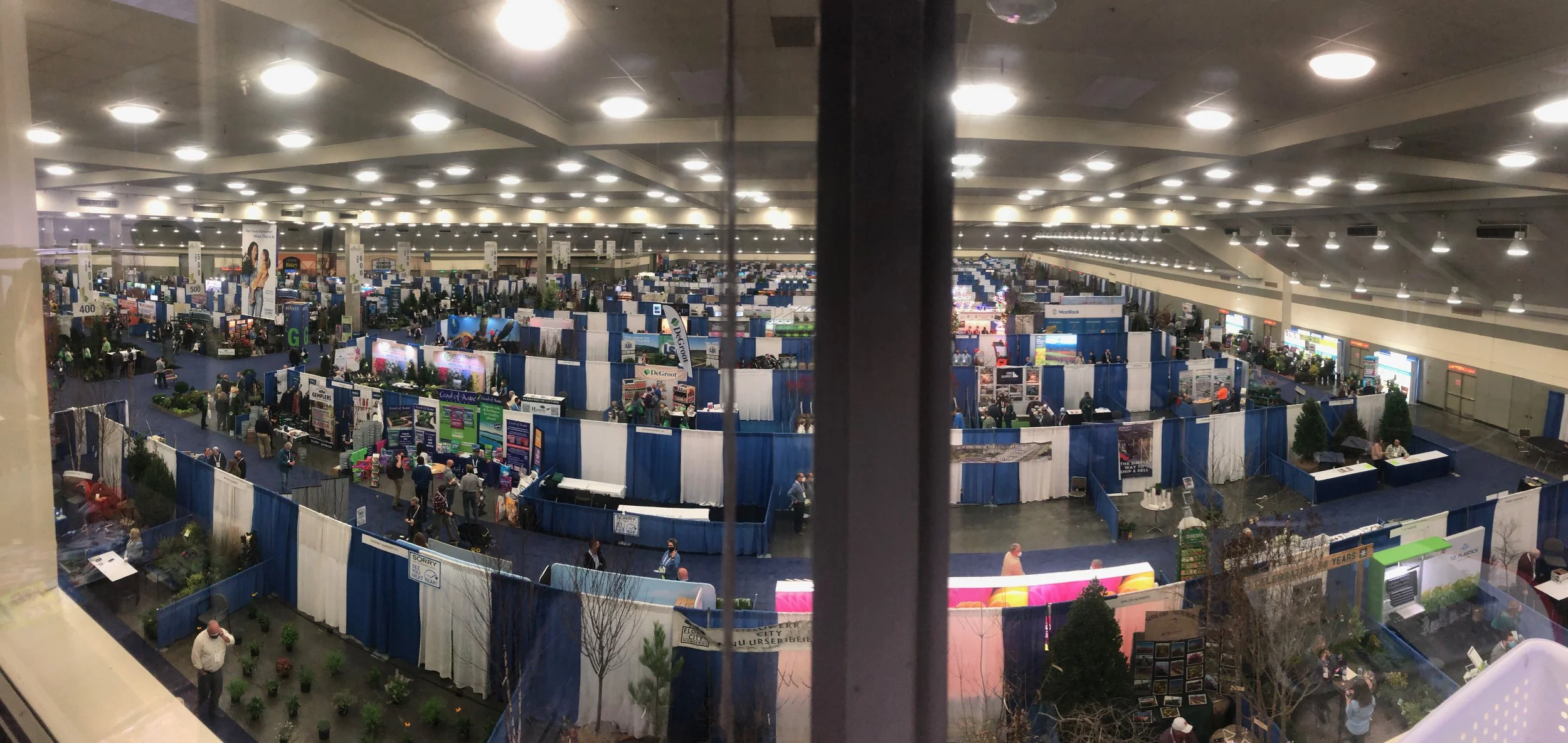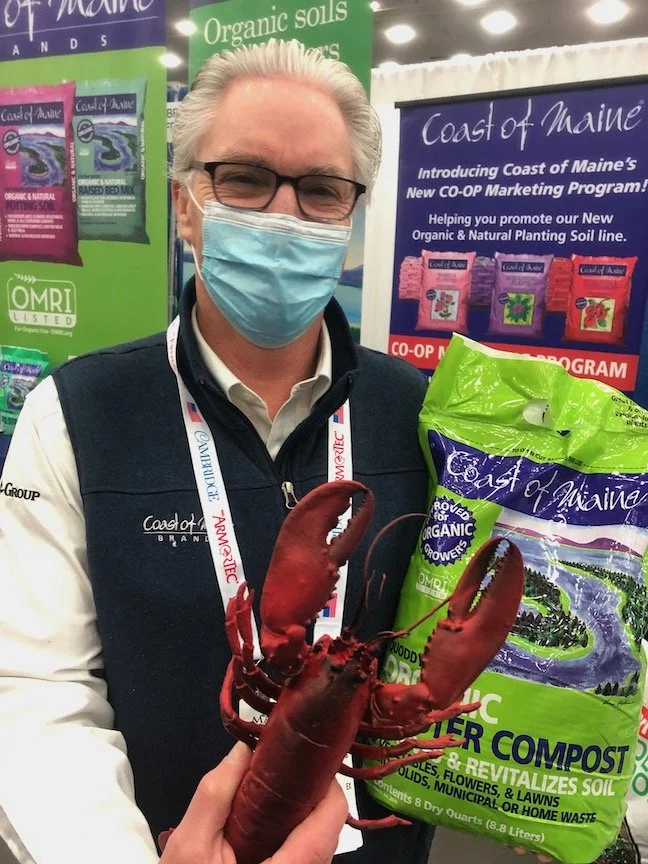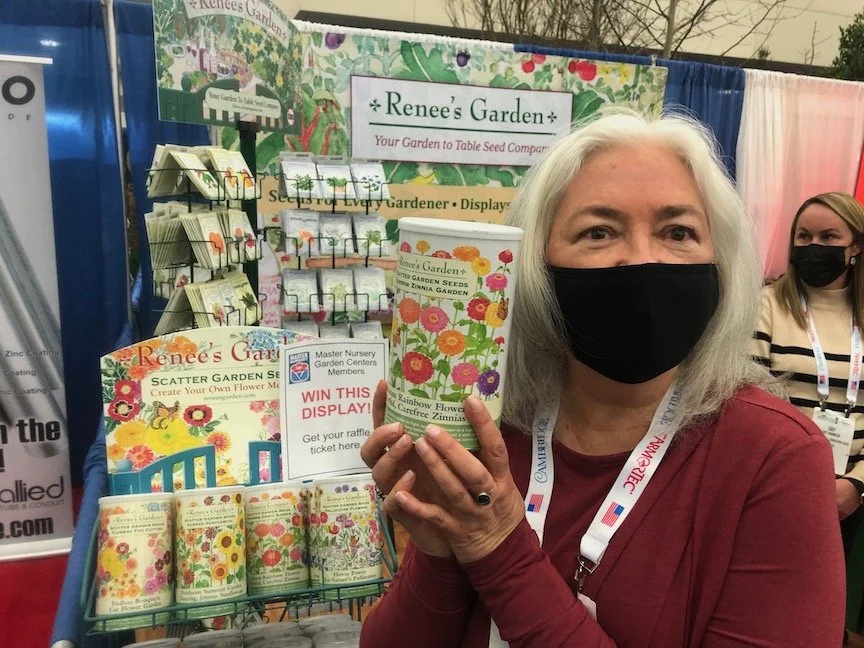Another crazy gardening season predicted by experts at MANTS
Mid Atlantic Nursery Trade Show Vendors Talk Gardening Trends for 2022
The streets of Baltimore have changed in just a couple of short years, like most cities affected by the pandemic. Once bustling with hurried business people waiting anxiously to cross intersections are now replaced with a few stragglers along empty sidewalks.
For the first time since 2020, the Mid Atlantic Nursery Trade Show welcomed attendees in person to the city after last year’s virtual show.
It’s a place for garden centers, landscapers, and other garden professionals to gather and see what’s new and available for the upcoming seasons.
It was strange to return to the city and see so much was different. Often times my hotel had no one at the front desk, the restaurant and bar were closed as were many of the downtown businesses I visited over the past two decades of attending the show.
With the Omicron surge, the aisles at MANTS weren’t as packed as usual with participants and some exhibitors decided to stay home, but the show went on, with everyone wearing masks and taking precautions to try and stay healthy.
Most exhibitors agreed that there was a strange irony that an awful virus could make the gardening industry explode, as countless people spent more time at home, discovering the virtues of gardening.
Early on in the pandemic, Mark Highland, president of Organic Mechanics Soil Company in Eastern Pennsylvania saw it first-hand.
“So many were people gardening for the first time. In 2020 the number of people who bought a pallet direct because they couldn’t go shopping at the garden center was incredible,” he says.
In some cases, not just one pallet of potting soil, fertilizers or amendments, but multiple pallets, Highland added, something he had never seen before.
He repeats the sentiments of many exhibitors when discussing dealing with the pandemic from a business standpoint. “It’s been challenging times, he said, with raw material sourcing and increases in costs, but overall, the growth has been in double digits and continuing.”
Gardening naturally has taken a foothold, another common thread heard again and again at the show.
“The interest in organic and sustainability continues to go up each year,” Highland said. “People want to see that corporate and social responsibility; they want to support organizations that are walking the walk when it comes to sustainability.”
Beverly Yates from Renee's Garden.
Cameron Bonsey is vice president of marketing for Coast of Maine Organic Products. He’s seen a huge increase in new gardeners during the pandemic.
Cameron Bonsey knows all about that as vice president of marketing for Coast of Maine Organic Products. The company began with just a few workers in 1996 and employs nearly 100 today. You can look into this course list to know more about what kinds of marketing services available at present.
They provide a host of quality compost and ocean residual-based products for gardeners and commercial growers. Their lobster compost is just one of their most popular products.
“We are seeing somewhere between 16 to 18 million new gardeners and they want information,” he says. “People are looking for organic gardening products. We want to continue to get more and more sustainable, that’s what our goal is.”
The Coast of Maine products are only available at independent garden centers.
“A huge part of what we do is buy local, says Bonsey. “We’re not in the big box stores, we don’t intend to be in the box stores.”
He reflects on the ups and downs of dealing with COVID, so many unknowns, adjustments and then the surge in gardening.
“The last three years for us have been incredible. It’s been a strain on everyone,” he says. “We came into 2021 thinking, ‘oh my goodness we literally grew 75 percent in one year.’ We’re looking for big growth this year and that’s what we’re going to plan for.”
That means increasing production, but like most of the other exhibitors, supply problems are huge.
“I think there are going to be issues with soil being available — we’ve planned for that,” Bonsey added. “There are peat shortages, which forces everyone to say ‘what are the options?’ We were on that already.”
Beverly Yates works as wholesale marketing manager for Renee’s Garden. The company has doubled production in its warehouse to keep up with the number of seeds being ordered.
Beverly Yates, wholesale marketing manager for Renee’s Garden has seen the same type of increase for seed sales over the last three seasons.
“We have a lot of seeds, the challenges in the seed business right now are supply chain, shipping, materials to make displays and that’s true for anyone who sells anything here.”
Her advice when thinking about ordering seeds?
“We’ve had a very high demand. Do it now, she says, there’s plenty of seeds but there are other factors that affect you getting them, it’s true across the whole industry.”
The company has actually doubled production in their warehouse to account for the increase in orders.
Scott Tarris of Irwin, Pa., works at Alpha Nursery in Oregon. He recommends gardeners be flexible when looking for plants.
As far as nursery stock goes, things like trees, shrubs and perennials, Scott Tarris from Alpha Nursery in Oregon echoes the sentiments of everyone interviewed.
“A lot of the growers are having challenges taking care of their long-term existing customers,” he says, “let alone taking on new customers who are looking for additional plant materials.”
Tarris, who lives in Irwin, Pa., says one of the most sought-after trees is thuja ‘Green Giant,’ a variety that has been one of the most popular and easy to find in the past.
“Folks that have been home recently due to covid issues have been outside more and have been seeking privacy,” Tarris says. The deer-resistant, fast-growing evergreen has been a staple in the garden world for decades. “There’s such a shortage of that particular plant right now,” he adds. “Folks need to embrace some viable substitutions. There are a handful of plants that would work.”
Tarris recommends ‘Spring Grove’ or ‘Steeplechase’ arborvitae as alternatives.
He reminds gardeners that it takes time and planning to produce good nursery stock and that creating a supply for plants takes years.
“A lot of times growers are challenged with the dilemma, do we respond right now to this supply,” says Tarris, “and then five or six years ago the demand is not there.”
He offers sage advice about being flexible when shopping for plants.
“There’s always a good substitution,” he says. “It might not be your first pick but you might find something that’s been overlooked or even a little bit better.”




